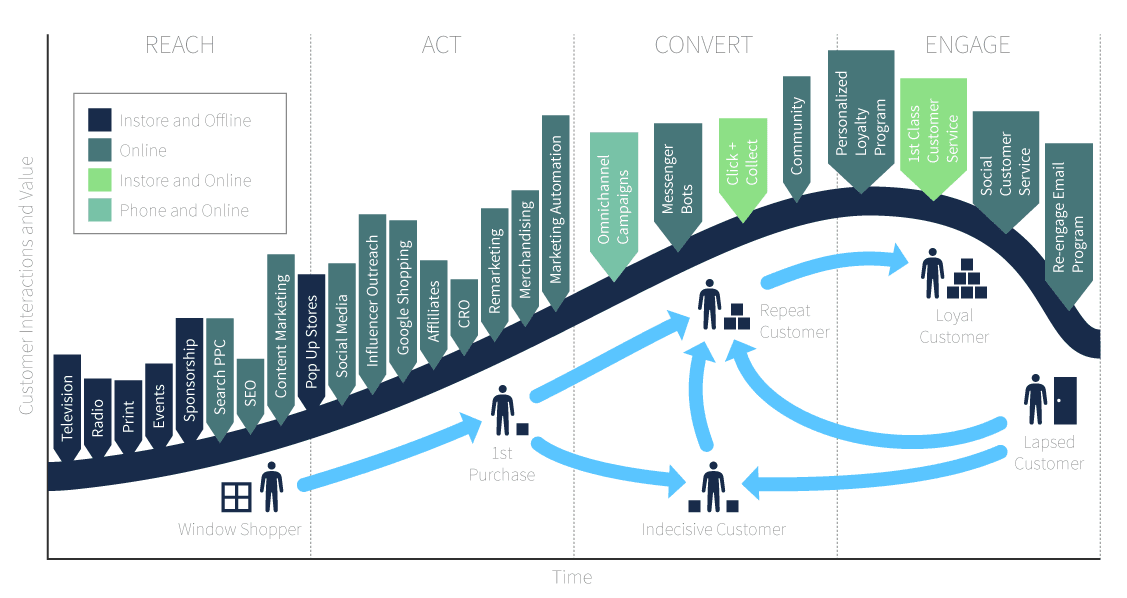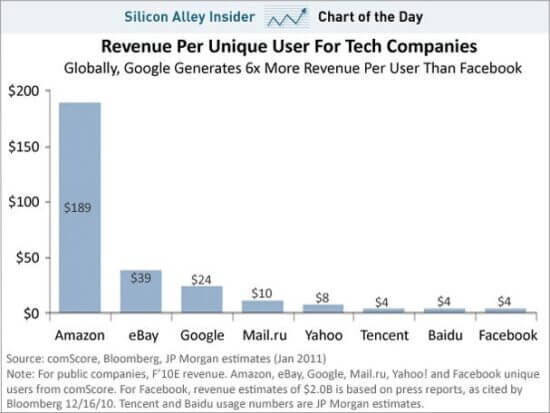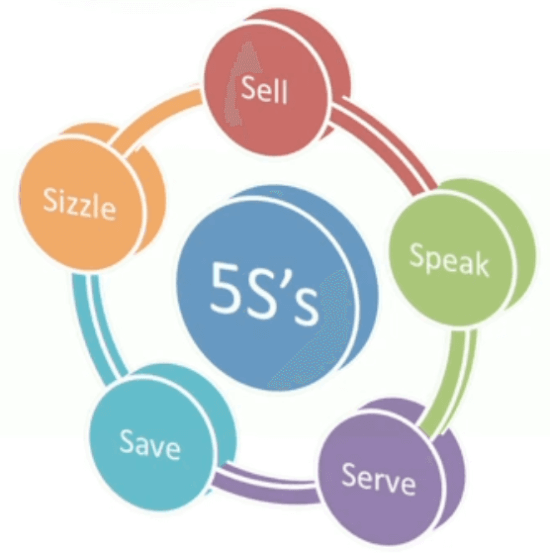Personalization offers great opportunities for retailers to improve relevance across the customer lifecycle
Successful e-commerce marketing today requires consideration of the full customer path-to-purchase shown below across the Smart Insights RACE lifecycle planning framework.

The infographic shows the vast number of omnichannel touchpoints across paid, owned, and earned media, both online and offline. Ultimately, a successful e-commerce experience for both site visitor and online businesses depends on relevance. If you connect a visitor with the most relevant products and offers, they will see the value and are more likely to convert.
Download our Free Resource – E-commerce personalization buyer’s guide
Implementing an effective retail personalization strategy can be one of the most cost-beneficial decisions you can make towards increasing your online revenue, improving your online conversion and building a loyal and happy customer base.
Access the
What is personalization?
There are two main techniques marketers use to deliver personalization: audience segmentation, and the page types/ placements within pages you will use to deliver recommendations.
Audience segmentation enables you to serve different recommendations based on grouped audience characteristics or behavior. Segmentation techniques vary from sector to sector, but popular segmentation can include first time/returning visitor, visitors who have viewed a product page or content asset, and age/gender/location demographics.
Within page types and placements, we recommend running AB tests to determine priorities. A well-optimized website could include options such as:
- Home page
- Product category page
- Product page
- On-site search results pages
- Offers page
- Mega menus/Primary navigation menus
- Basket
- Order confirmation page
- Lead generation landing pages
- Pop-ups or header/footer bars containing opt-in offer across all page types
Outpace your competition in a challenging SME market
Access a complete marketing survival kit to grow your business during a recession
Get Results, Fast
We have all experienced personalization online such as retail product recommendations like those from Amazon. But you may not know there are many more personalization options available than the ‘people who viewed this, also purchased this’.
Dr. Dave Chaffey's updated Amazon case study sheds a light on how data-driven decision making and marketing innovation has lead Amazon to the forefront of retailers today:
We can all learn from their focus on the customer, testing market opportunities made available by digital technology and their focus on testing and analysis to improve results'.

Personalization benefits
Let’s introduce the benefits of personalization based on the 5S benefits of digital marketing identified by Dave Chaffey and PR Smith in their book Digital Marketing Excellence.
- Sell – The most obvious benefit of personalization is increasing your sales by recommending relevant products and offers through search and merchandising. The potential sales growth may be bigger than you think.
- Speak – This refers to using digital media to initiate dialogue. In a retail context, this means encouraging site visitors to share their email addresses and permission to mail them.
- Serve – Conversion can also be assisted by showing first-time purchasers that you are a trusted brand with a competitive service proposition (for example, by explaining discounts, shipping, and returns). These key brand messages are often delivered by retailers through run-of-site personalization features like a site-wide stripe below the navigation, in a footer or a panel elsewhere on the home page.
- Save – If you select the right type of personalization system, the automated element can also reduce costs through time savings based on manual merchandising involving manually setting up product recommendations on home and category pages. AI can reduce the manual effort since it collects and analyses big data and provides your customers with AI personalized recommendations based on previous and current website behaviors, crowd trends and customer segment behavior.
- Sizzle – This is a softer benefit about adding more ‘pizzazz’ to your brand by adding a ‘wow’ factor for your site visitors. If you’re a lesser-known retail brand it can boost your credibility and visitor confidence through showing that you offer similar recommendation features and campaigns to the well-known retail brands. E-commerce personalization enables that ‘wow’ factor which helps to build brand loyalty and lifetime customer value.

The 5 Ss illustrate the factors that you should build into your business case. But don't walk before you can run! Prioritization here is vital to success; use marketing models to identify what you're trying to achieve through personalization. For example, to increase customer LTV you could trial set up simple personalization tactics for returning customers. Or your strategy may be to develop your international market, for which you might look into localization.
The options are endless so set your objectives accordingly.











